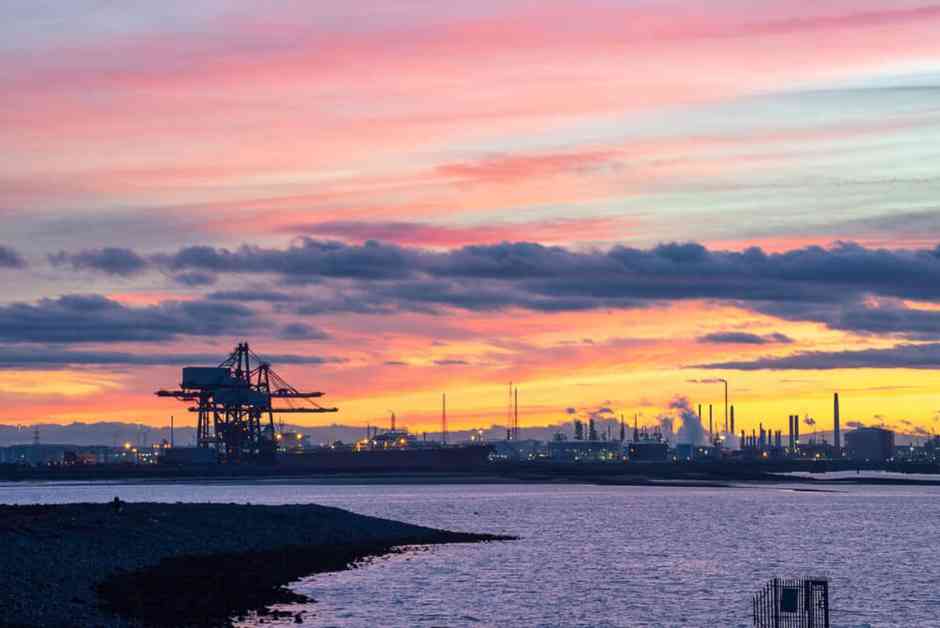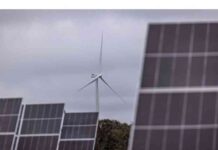Suez UK Takes Strides Towards Carbon Capture for Sustainability Goals
Suez recycling and recovery UK is making significant progress in advancing its carbon capture projects in the East Coast Cluster, underscoring its commitment to sustainability and decarbonization efforts. The company has collaborated with Preliminary Front End Engineering and Design (Pre-FEED) contractors to prepare for the next phase of these crucial projects. This initiative is in line with the company’s goal of securing funding through the Industrial Carbon Capture Track-1 Expansion project from the Department of Energy Security and Net Zero.
The East Coast Cluster project is a pivotal component in the UK’s journey towards achieving Net Zero emissions by 2050, as outlined by the Government’s Climate Change Committee. According to the committee, Carbon Capture technology is not just an option but a necessity in reaching this ambitious target. Suez is at the forefront of this movement, focusing on reducing the carbon footprint of waste and exploring innovative ways to minimize carbon emissions across its operations.
Stuart Hayward-Higham, Technical Development Director for Suez recycling and recovery UK, emphasized the critical role of Carbon Capture in decarbonization efforts, stating, “Carbon Capture is vital to decarbonization and we have the expertise to make this a reality. We are confident in our strategy and are ideally placed to showcase what this technology can do.” The company’s strategic partnerships with Fluor and Technip Energies highlight its commitment to driving sustainable solutions and maximizing the potential for carbon capture across Teesside and Humber.
Strategic Partnerships for Sustainable Solutions
Fluor and Technip Energies have been integral partners in the Pre-FEED stage of Suez’s carbon capture projects. Fluor’s Econamine FG PlusSM technology and Technip Energies’ Canopy C200 modularized solution, powered by the Shell CANSOLV® CO2 Capture system, have been instrumental in advancing these initiatives. Jason Kraynek, President of Fluor’s Production and Fuels business, expressed confidence in the company’s carbon capture technology, stating, “Our Econamine FG PlusSM carbon capture technology is perfectly suited to assist SUEZ in creating a more sustainable future.”
Christophe Malaurie, SVP Decarbonisation Solutions at Technip Energies, echoed this sentiment, emphasizing the joint commitment to decarbonizing industries and building a sustainable future. He noted, “By leveraging Technip Energies’ Canopy C200 modularised solution powered by the proven Shell CANSOLV® CO2 Capture system, we are taking a step forward to achieve our Net Zero goal while ensuring cost and delivery certainty.”
Expansion and Future Plans
The successful implementation of these carbon capture projects will pave the way for a large-scale rollout of the technology across Suez’s energy-from-waste plant portfolio. Plans are already underway to expand these initiatives to other parts of the UK, demonstrating the company’s dedication to sustainable practices and environmental stewardship. The East Coast Cluster project, with its innovative approach to carbon capture and storage, is poised to make significant contributions to the UK’s decarbonization efforts.
Last month, The Northern Endurance Partnership (NEP) launched a public consultation on the Humber Carbon Capture Pipeline (HCCP), a proposed onshore infrastructure project aimed at transporting captured carbon dioxide from the Humber region to secure offshore storage beneath the North Sea. This initiative underscores the collaborative efforts within the industry to combat climate change and reduce greenhouse gas emissions effectively.
In conclusion, Suez’s advancements in carbon capture projects signify a critical step towards achieving sustainability goals and driving decarbonization efforts in the UK. The company’s strategic partnerships, innovative technologies, and commitment to environmental stewardship position it as a key player in the transition towards a low-carbon future. As the world continues to prioritize climate action, initiatives like the East Coast Cluster project serve as shining examples of how collaboration and innovation can pave the way for a more sustainable tomorrow.






















